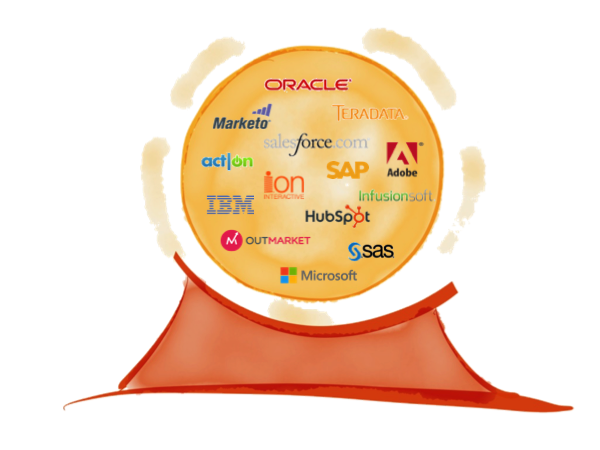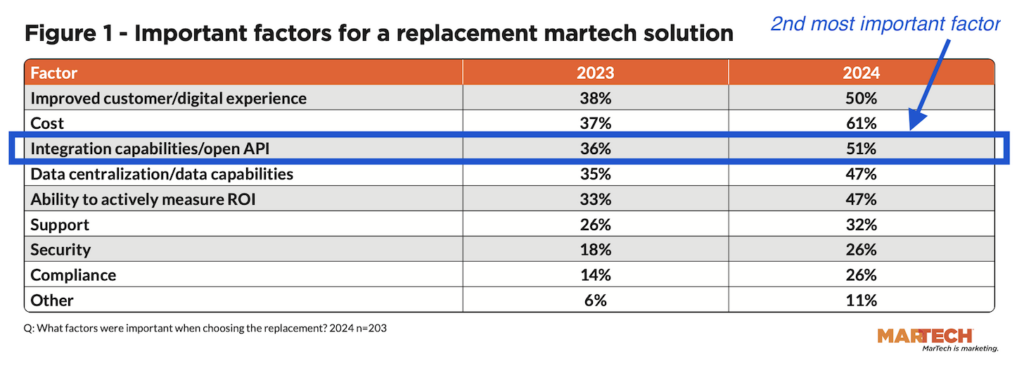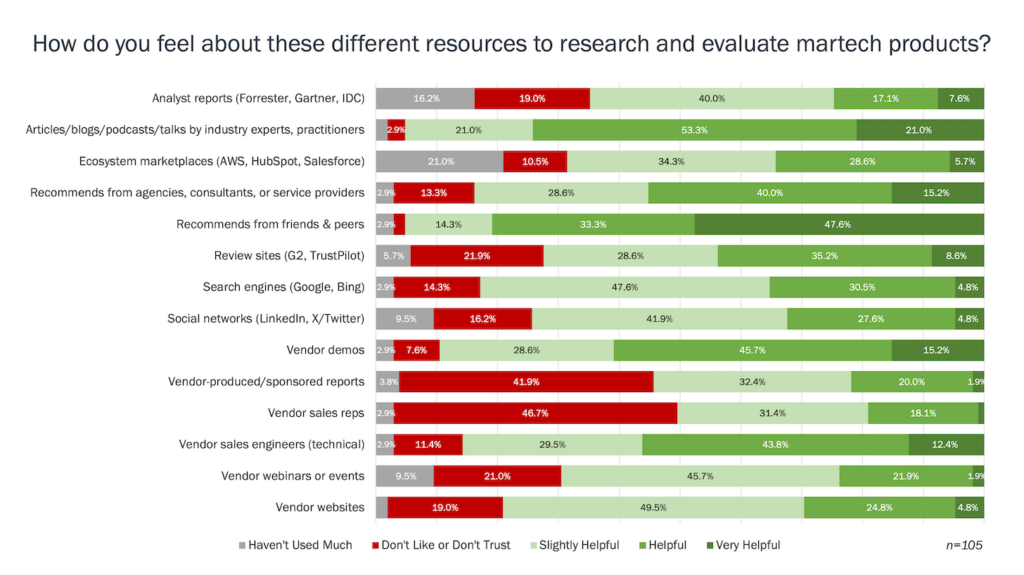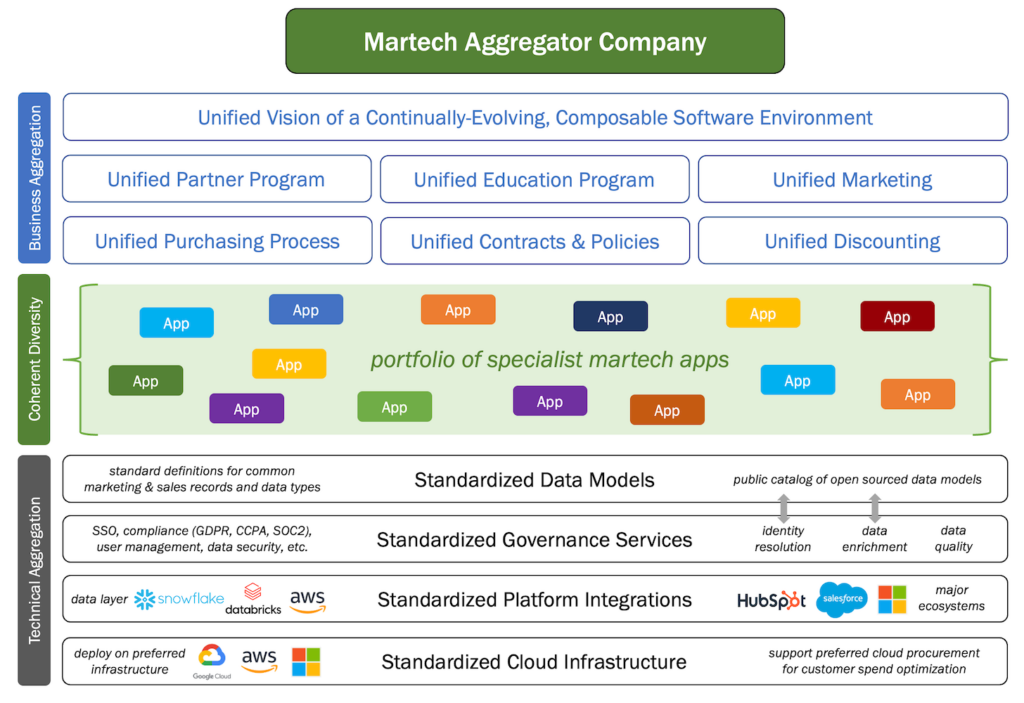Welcome to prediction season, again! It doesn’t take a crystal ball to know you’re going to be inundated over the next 30 days with people prophesying your future — at least your future in marketing for the year ahead.
Personally, I subscribe to Yogi Berra’s worldview, “It’s tough to make predictions, especially about the future.” (Variations of which are sometimes attributed to Niels Bohr.) Most of the so-called predictions we’ll hear in the month ahead fall into one of three categories:
- Trends that are already underway (“mobile usage will increase!”).
- Hopes of the predicting author (“my product category will dominate the world!”).
- Vague claims that are hard to disprove (“there will be a backlash against big data!”).
I don’t want to be The Grinch Who Stole Christmastime Content, but to me, a real prediction is like a SMART goal: it’s specific, measurable, achievable, relevant, and time-bound.
For example, here’s a prediction that I’ll make:
Microsoft will make one or more major acquisitions in the marketing technology space in 2015, spending more than $1 billion in M&A to make a bid as a major marketing platform provider.
Now, I don’t claim this is an especially brilliant prediction. Microsoft is conspicuously one of the last major enterprise software vendors that has yet to make a significant move on the marketing technology landscape. Dynamics CRM is a good piece of the puzzle, but it’s just one piece.
They may acquire a “traditional” marketing platform — such as Marketo, HubSpot, SAS, Sitecore, Acquia, or possibly even HP’s Autonomy. But I think it’s just as likely that they’ll take a different tack with a move for marketing middleware (DMPs, customer data platforms, tag management) or a web service further downstream in the digital marketing channel, such as LinkedIn or possibly Yahoo.
At the end of 2015, I’ll either have been right or wrong. That’s a prediction. (However, it is not investment advice. I don’t actually know what Microsoft will do — this is just my educated guess — and whatever they do may help or hurt their valuation. I also own a small number of MSFT shares that I bought in the 1990’s, so my fixation on them may be subconsciously motivated by that.)
7 Strongly-Held Beliefs about Marketing Technology in 2015
However, while I’m wary of overemphasizing “predictions,” I do agree that the end of the year is a good time to step back, reflect on the year that’s been, and contemplate the year ahead. Trends, hopes, and even vague-but-meaningful claims all have a part to play in that meditation.
So here are 7 not-quite-predictions that I believe about marketing technology in 2015:
#1. Marketing technologists will multiply. Whatever label you want to put on them, the number of technical professionals working in the service of marketing is clearly on the rise. I’m hearing the term “marketing technologist” used more frequently, and I expect that it will gain more traction in the year ahead. Where will these previously nonexistent marketing technologists come from? Many will migrate from IT, where a subset of those professionals are eager to apply their technical talents in the pursuit of more exciting, customer-facing innovations that are recognized as driving revenue, not merely containing expense.
#2. The marketing technology landscape will grow, not shrink. Yes, there will continue to be big deals that feed the counter-narrative of consolidation. For instance, if Microsoft does fulfill my prediction, that will be a consolidation. However, the number of new entrants will continue to outpace the number of exits (happy or otherwise). As Neeraj Agrawal of Battery Ventures said in his Q&A with me, we’re just in the 4th inning of the game. There’s money. There’s opportunity. And it’s never been easier to create software in the cloud.
I can make a promise — stronger than a prediction — that the 2015 version of my marketing technology landscape will have more companies represented than 2014. And yet it still will be woefully incomplete.
UPDATE: This promise has been fulfilled. The 2015 edition of my marketing technology landscape has been released, now charting 1,876 companies and open sources projects — nearly double from 2014.
The next three factors, however, will make this incrementally more manageable.
#3. The ISV ecosystems around major platforms will flourish. 2014 was a remarkable year for the public support that many of the major enterprise marketing cloud providers — Adobe, IBM, Marketo, Oracle, Salesforce.com — gave to their ISV communities. Marketo recently celebrated over 400 third-parties officially in their LaunchPoint ecosystem. The message: one company can’t do it all. I believe these platform strategies will accelerate in the year ahead, and they will make it easier to find and integrate the right capabilities from a very large field of more specialized vendors. I expect that we’ll also see some impressive innovations in the depth of these plug-and-play integrations — they’ll fit into a platform’s user interface and data services features much more seamlessly.
#4. The adoption of “marketing middleware” will increase. Tag management systems, data management platforms (DMPs), customer data platforms (CDPs), cloud app connectors, enterprise service buses (ESBs), etc., have all had a terrific year and are poised for more growth in 2015. These software solutions provide a layer of marketing data management that spans many different systems. When implemented well, they make heterogeneous marketing stacks more manageable — which also enables brands to avoid being cornered by a single vendor. Greater IT talent applied to marketing technology management will help proliferate these more advanced and adaptable architectures.
#5. The line between software vendors and service providers will blur. Everyone in the marketing technology field should read Software vs. Services: Is There Really A Difference by Martin Kihn of Gartner. This is so spot-on. And with Publicis’s pending acquisition of SapientNitro, the stakes for the major agency holding companies to embrace this blurring have ratcheted up considerably.
Having reflected on marketing-as-a-service (MaaS) since my debate (in the comments) about it with Gerry Murray from IDC last month, I think he’s right: it’s going to be a major channel for marketing software. But not just for the big marketing clouds. This will be a tremendous channel for innovative and niche marketing applications — including specialized software programs, everything from custom algorithms to cross-system “glue,” that will be developed by those service providers themselves to create non-commoditized competitive advantages.
Those last three — ISV ecosystems, middleware, as software/service convergence — all help make a rich and diverse landscape of marketing software more accessible to marketers who don’t want to get bogged down in a bunch of complex integrations themselves. Effectively, they can now offload that technical effort to vendors, middleware architectures, and service providers. It begins to turn the vast scale of the landscape from a bug into a feature.
#6. Several big companies will become new entrants in the marketing tech space. Dell’s entrance is the most recent example. I’ve already made my prediction for Microsoft. Other classic tech giants that I would keep an eye on include Cisco, Citrix, Intel, Intuit, and Xerox. I also believe that Amazon, Facebook, Google, LinkedIn, and Twitter will significantly expand their software offerings to marketers — LinkedIn’s acquisition of Bizo is Exhibit A — which will start to impact the competitive dynamics with marketing clouds from the “traditional” enterprise software companies.
#7. All of marketing technology will be hot — but some categories will be really hot. 2014 was the year of content marketing and predictive analytics, which will remain big. Next year, I think we’ll see five other categories gain traction. Four of them — sales enablement, post-sale customer marketing, marketing finance, and marketing talent management — are all about hybridization between marketing and other departments: sales, customer service, finance, and HR, respectively. The fifth will be innovations related to the Internet of Things (IoT). Yes, I can’t but help cringe a bit when I say that, as I know there’s a lot of hype around IoT. But the reality is that with ubiquitous connectivity and device proliferation, the field of hybridized online/offline experiences is almost — almost — ready to blossom.
Actually, I believe there’s also a sixth category that will be on fire in 2015 — interactive content. I feel a little sheepish saying that because, well, my company, ion interactive, offers interactive content marketing software (you can read the story of our pivot here). So you could certainly argue this is my “hope” more than a prediction. But, if you’ll indulge me for a moment, it’s evident that content marketing is becoming a victim of its own success: the noise of passive content (the world-wide web of white papers and webinars!) is deafening, steadily reducing its efficacy in engaging and educating prospects. Interactive content changes the rules of that game, by letting marketers produce more permanent customer experiences instead of just more transient customer communications. And it’s not just me. I’ve been seeing a lot of new competitors emerge in the category. There’s going to be some really interesting innovations around interactive content in 2015. In keeping with the hybrid theme of the other five categories, think of this as the hybridization of communications and experiences.
But, yes, I’m pretty biased on that last one.
One last thing: if you’re interested in marketing technology in 2015, I hope you’ll plan to join us for the next MarTech Conference in San Francisco, March 31 – April 1. It’s going to be two intense days of diving into the details of how innovative companies are harnessing all these amazing dynamics to their advantage. We’d love to have you join us.
What do you believe will be important to marketing in 2015?




Spot-on as always, Scott. Many thanks.
I agree that success in big marketing platforms lies in their openness to a myriad of independent small players orbiting around them, which is great news for everyone.
Now, I also believe a strong case can still be made for ad hoc marketing technology ecosystems entirely built on a custom selection of interoperable, super-specialized solutions. Having more marketing technologists on board should actually result in more people daring to explore this avenue with confidence.
Finally, Marketing Apps (as interactive content experiences) make all the sense. We certainly have reached a worrying ratio of white paper authors/readers in the B2B space 🙂 – Good luck with it.
Thanks, Sergio! The exponentially growing ratio of content-to-readers is the mathematical statement of content marketing’s biggest challenge.
In a word… yep. 😉
A lot of good calls here. I agree strongly with your call on Microsoft – I think their entry into this space is all but assured. My guess has been Marketo (see my post below). But Microsoft has historically been willing to make massive acquisition attempts as well (ex. Yahoo), and I could even see them making a move for, say, LinkedIn.
Speaking of which, to #6, I think that LinkedIn’s move into B2B based on social CRM is highly likely as well. (Which probably sweetens the pot for MSFT and Dynamics CRM.)
There’s one company I don’t see on this list, though – SAP. I don’t think they’re done building a presence in this market, even with the Adobe alliance. What would the two have to gain from a merger, I wonder?
Some thoughts of mine a while back on this topic too: http://www.bullishdata.com/2014/06/23/marketing-landscape/
Thanks, Blair! That’s a great post you wrote in June about the evolution of the landscape. It will be interesting to see what Microsoft actually does. There are “safe” moves they could make, but also some potentially disruptive ones.
I agree with you that SAP has more ahead for it in the marketing technology space. I didn’t list them as a new entrant, since they’re already in the space in some segments — for instance, Hybris is a major force in e-commerce marketing. HP is another company that’s already got a foot in the door, but has the potential to make significant advancements.
Whatever happens in 2015, I’m sure it won’t be dull.
Scott, always great to read your articles and comments (as in the ones to Tyler an Blair) – thanks. RE: HP: Couldn’t agree with you more about their foot in the door and the relaunching of all the solutions that Autonomy and Aurasma have to offer the Marketer of today ….and tomorrow … Attribution is the one word that came to mind regarding the the future of marketing and what’s ahead in 2015 (glad to see you brought into the discussions).
Microsoft have already made acquisitions in the marketing technology space – they acquired Marketing Pilot in Oct 2012 (https://community.dynamics.com/b/msftdynamicsblog/archive/2012/10/17/microsoft-dynamics-crm-steps-forward-in-the-marketing-automation-space.aspx) and released it under the Microsoft brand as “Microsoft Dynamics Marketing in June this year. They acquired Netbreeze (https://www.netbreeze.ch/) in March 2013 and have re-released this as Microsoft Social Listening and have recently acquired Capptain (http://www.capptain.com/). So a lot of acquisition already and probably more to come…
+1 as always, Scott.
I’d say, there’s one more prediction shining through all your beliefs: The time of large, monolithic, one-software-to-rule-them-all offers is over.
The adoption of agile (and lean) marketing will become the driving force for all software vendors requiring them to rethink their (software) architectures and offerings.
Thanks, Bruno. You’re absolutely right. Kudos for eloquently stating in two sentences what I was stumbling around for in 1,200 words. 🙂
I believe that a lot of what you are saying is spot on. However, I also challenge that existing corporate cultures in those companies transitioning to digital will still retain the same challenges they do today. Be it pride or for any other reason, innovation means breaking rules, taking risks, and having fun doing it. I am not sure these company’s can appreciate any of these concepts unfortunately.
That’s an excellent point, Brian. The culture is the most important part of the equation, and by far, the most difficult to change.
But, I’m a bit of an optimist that such change is possible, if those companies decide they want it. The interview I did in the previous post with Rishi Dave of Dun and Bradstreet is an inspiring case to me. But I have no doubt that it was a major challenge (and more to their credit for tackling it).
Excellent Article, good presumptions, The rise of VPN’s – customization is king!
This was honestly a very well written, very well thought out article. I sincerely appreciate the thought structure and attempt to be as non-biased as possible, even if the results of your predictions ultimately benefit you. In fact I agree with most of what’s written here. But at the end of the day this article, like many others on this site, essentially says, “Marketing tech is going to become increasingly important, and as a result we’re going to become increasingly important”.
This was a great feel good read for marketing tech/ops folks campaigning for more prestige in their organization. However in all the cheerleading, I believe your ignoring a few key risks and realities that marketing technology/operations workers face.
1. Individual marketing software is becoming more and more user friendly in terms of UI and basic implementation for many SMBs. Marketing technologists may only be needed in the enterprise where implementation and maintenance is overwhelming for those without a strong IT background.
2. Marketing software continues to be a huge staffing and infrastructure expense with a somewhat shaky ROI to the organization. In other words, many decision makers see it as a super expensive way to realize that they wasted their money, putting theirs and other’s jobs in jeopardy.
3. Marketing operations is consumer facing in a way, but it is not really marketing, rather will continue to mostly be the facilitation and maintenance of marketing. Most marketing ops people do not have creative latitude and are instead responsible for the implementation of others’ ideas including creatives, analysts, or media planners.
Sure, these are pretty vague claims that are hard to *prove*, but in my opinion, they represent how many people not directly responsible for marketing tech view the role.
Thanks, Tyler. I appreciate both your kind introduction and your points of contention. 🙂
I agree that the points you raise are part of the equation too. The reality is that “marketing” and “marketing technology” are in a very fluid state right now, much more shades of gray than black-and-white statements do justice to. My not-quite-predictions above certainly suffer from oversimplification. But I’d humbly suggest that your counterpoints, while true in many ways, are also subject to considerable nuance.
Yes, SMBs will have an easier marketing management environment than enterprises — they always have. Marketing software is just the latest incarnation of that, although I will state that in the digital world, I believe SMBs have some real structural advantages thanks to their nimble size.
Still, there are a lot of cases where a little bit of tech savviness goes a long way in helping an SMB choose the right software, apply it in the right way, and strategically take advantage of opportunities to differentiate themselves as new consumer technologies and preferences emerge. Definitely doesn’t mean that every business needs a dedicated marketing technologist (they don’t) or that everyone who wears a marketing technologist hat, often in addition to other hats, needs to be a high-powered software engineer (they don’t). But I do believe that thinking of customer experience through the lens of technical capabilities is going to be a respectable part of marketing’s DNA for many years to come.
The ROI of marketing software is certainly a fair thing to question. My friend Louis Gudema does a great job of arguing that point. However, without defending it in absolute terms, I’d just ask this: have marketing software investments given better relative ROI than previous sinks of marketing money such as mass market advertising? There have been some pretty disastrous, multi-million dollar Superbowl ad campaigns after all. Marketing didn’t need technology as an excuse to make expensive bad decisions in the past.
I think it’s important to note, however, that a lot of marketing technology is focused on measurable performance. It’s far from perfect. Attribution is a hard problem. But I think the intention to hold marketing to ROI on its choices — in technology, in media, in creative — is a positive shift in management and culture that marketing technology catalyzed.
And, yes, I agree that marketing operations has traditionally been quite removed from the creative and customer experience aspects of marketing. That’s not good. But I believe that more marketers are realizing that and that the potential exists to change the way we structure and manage the “capabilities” behind brilliant marketing. Of course, that’s easier said than done. But most things worth doing are 🙂
Anyway, thanks for adding to this conversation — really good points to think about!
Scott,
Great article. I had a similar thought a month or so ago and I posted this on LinkedIn titled “Why Google will buy Marketo” – although I really could have titled it “Why Google or Microsoft should or will buy Marketo, HubSpot or someone like them….” 2015 should be interesting!
https://www.linkedin.com/pulse/article/20141013004823-577129-why-google-will-buy-marketo?trk=prof-post
Thanks Scott.
Very insightful as always.
I particularly agree on points #4 and #5 and I believe they are definitely related: higher adoption of marketing middleware will help blur the line between software and services vendors. I think there will be acquisition movements going on but definitely compensated by a bunch a new entrants.
All in all, a very dynamic environment which is good to be part of.
What would be great for you…and for all prognosticators…is a central repository that logs previous predictions and tracks accuracy. Then, we’d know who has a strong track record Y/Y.
I thought this was a very solid post (which is to be expected) and I’d suggest there’s another angle to the battlefield, which is customer experience. Gartner has some great insights on this (89% of competitive battles will be around it) http://blogs.gartner.com/jake-sorofman/gartner-surveys-confirm-customer-experience-new-battlefield/
So, the question will be which of the technologies you discuss are best positioned to facilitate the delivery of experience across the enterprise in a managed and optimized delivery way. I’m biased, of course (disclosure: I’m VP/mktg @sprinklr) but it’s got to happen.
Brian, above, really nails another key point…all of this stuff is great, but if there isn’t leadership around changing culture so that it is TRULY customer centric (not process-centric and not merely lip service), then all the investment in the world won’t really make a huge difference. It’ll help, but it won’t be transformative.
More ISV Ecosystems will emerge. These ecosystems will center around industries not just platforms. As the Marketing Technology industry grows, companies will be looking for knowledgeable partners who can assist and support the application of these technologies (blurring software & service). I believe we are more in the first or second inning with customer adoption and execution still in infancy. As adoption grows, the next innings will center around customer success with sustained ROI. This, too, is a biased prediction.
Great article and insights Scott.
Strongly agree with trend #4 on marketing middleware. There’s currently a real trade-off between buying the best software for each marketing use case and going with a single vendor.
A time & energy waster when different parts of an organisation want different vendor stacks.